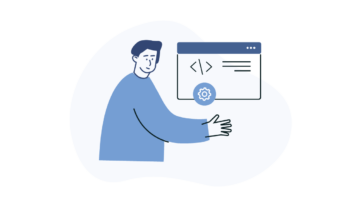Benefits of ERP Implementation
Enterprise resource planning (ERP) systems provide enormous benefits to growing companies. Different from more basic accounting software, ERPs centralize data, information, and processes from every department in a company within one system.
Due to the robustness of ERPs, the initial implementation and continued maintenance of the system both require a significant amount of effort.
However, the investment is well worth it, as ERPs make management over expenses, inventory, sales, and employees much more streamlined and efficient. Though we do not endorse one particular ERP over another, this article will dive into the benefits of ERPs as well as suggestions for implementation.
Does my Business Need an ERP?
Traditionally, due to their complexity, ERPs have been reserved for larger companies that have bigger operations—and consequently, bigger budgets. However, more options have become available for small- and mid-sized businesses to similarly reap the benefits of an ERP.
While business owners and executives should ultimately weigh the pros and cons of adopting an ERP, some indicators that your business is ready for one include:
- Process inefficiencies, such as having too many manual processes that can be automated, or having too many systems that house similar data.
- Challenges with reporting, such as spending too much time compiling data for reports from different systems, or not being able to generate reports that the business needs most.
- Delays in reporting, such as being unable to pull timely data and business metrics needed to make decisions.
These problems all point to one main issue—your current system isn’t keeping up with your business.
Benefits of an ERP
The specific advantages that an ERP can provide your business may vary slightly by industry, but overall benefits include:
Centralized Data and Security
One of the greatest value-adds of an ERP is that all information across departments can be stored in one system. Imagine being able to access information from your customer relationship management, applicant tracking, human resources, and accounting systems in one place. An ERP not only centralizes your data, but helps to eliminate redundancies and inconsistencies across the organization. Reports are similarly easier to generate and are all created in the same format.
Additionally, when your data is spread across fewer systems, it increases the overall level of protection. This is especially important if your business handles sensitive client data.
Increased Compliance
An ERP provides customizable reporting tools to help track compliance, making an audit much smoother and less stressful. Even just having data that’s up-to-date, accurate, and searchable greatly reduces the work needed to comply to regulations that your business must adhere to. Specific ERPs are also GAAP compliant, saving your accounting team a great deal of time.
Added Visibility
Data visibility is key to making smart business decisions, whether it relates to pricing, ordering, hiring, or sales. Having visibility into the processes and data of each department helps the overall organization reach goals and meet KPIs. For example, you can decide how much of the budget to allot to marketing efforts to supplement the work that your sales team is executing.
Scalability
Compared with accounting systems, ERPs have the upper hand when it comes to scalability. Your business can use the functionalities it needs now, knowing that your system will adapt and support the business as it grows. New users and departments can be added to the ERP as you grow, and you eliminate the need of implementing another new system even if your business changes significantly.
Implementing a New System
Once the decision has been made to purchase an ERP, the next challenge is implementing the system. Generally, a system implementation is a proactive measure to prevent problems down the road; if your business is growing rapidly, implementing a new system now can help to gradually improve the business and avoid major obstacles.
System implementations are projects that typically need to be outsourced as opposed to done in-house. An outsourced CFO can help analyze the needs of the business and find a system that fits best. Additionally, they can oversee the transferring all data (from accounting, inventory, etc.) from the old system to the new, all while running both systems in parallel. They can additionally aid in training existing staff on how to use the new ERP. Bringing in an outsourced CFO to manage the implementation ensures that nothing slips through the cracks when upgrading systems.



